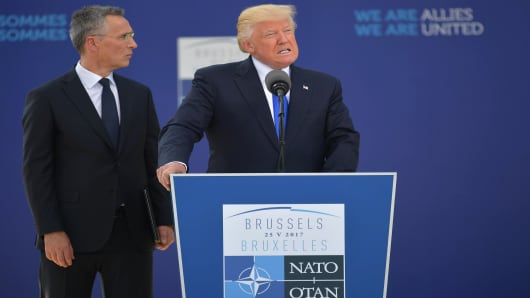At roughly the same time every year, the world’s oldest military alliance assembles in Brussels to reaffirm its unity, strength, and resolve. The annual North Atlantic Treaty Organization (NATO) meetings are typically an opportunity for member states to take stock of the most pressing international security issues of the day.
The event is largely a highly choreographed and antiseptic affair; after two days of conversation and the crafting of a lengthy joint communique, the delegations get on their planes and fly back home.
Needless to say, President Trump has shaken that routine. In more conventional times, European heads-of-state and NATO officials would be eagerly awaiting the transatlantic reunion rather than biting their nails wondering what the U.S. president may say or do during the summit.
But, alas, Trump—a man who once called NATO an “obsolete” relic of the Cold War and who takes joy at scolding Washington’s European partners for lackluster military spending—is the human antonym for conventionality.
Trump, of course, has since amended his description of NATO as obsolete. It is, after all, still an operational military alliance that continues to send troops to Afghanistan. Yet it would be highly unwise for members of the alliance to discount what Trump has to say. While NATO is not at risk of extinction, it finds itself at a critical inflection point in its nearly 70-year history. Continuing with a business-as-usual is not an option.


